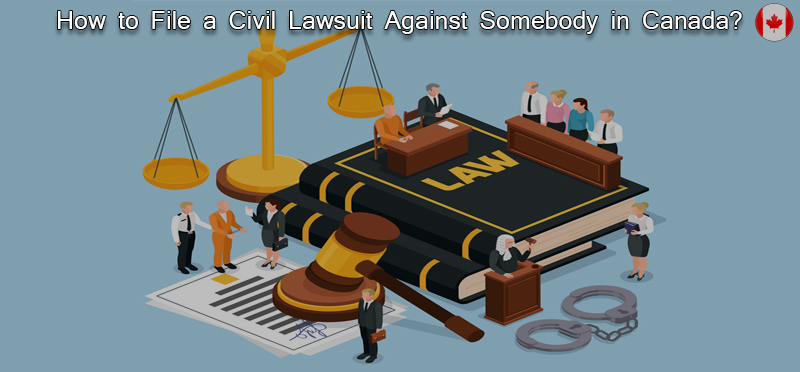
As per the Canadian Justice System, civil law covers lawsuits regarding contract violation, property disputes, torts, etc. Civil lawsuit differs from criminal law in terms of both scope and compensation. You can approach the Small Claims Court for claims within $35,000. For minor cases with claims around $5000, the Civil Resolution Tribunal will hear your case.
Legal proceedings to file a civil lawsuit
Primarily, decide which court is appropriate and reasonable for your case.
Once settled, you may begin with the legal proceedings to file a civil lawsuit –
1. Mediation
Before considering a trial with your evidence, try resolving your case outside court. It is less expensive and faster.
You have mediation, negotiation, and arbitration available to you as procedures.
2. File Charges
The plaintiff brings the charges complete with facts and data. The defendant is served the statement of claim and can start preparing their defense.
If the defendant opts out of the case or fails to submit their defense, the plaintiff may collect an affidavit of service for default judgment.
3. Discovery Process
If the case proceeds to trial, a discovery process is followed.
Both parties, accompanied by their lawyers, reveal relevant documents and evidence regarding each other’s lawsuit.
Witness statements are recorded. The meetings are arranged through a notice of examination, served by one party to the other.
4. Trial
Following the discovery, either party may set the motion for trial by filing a trial record.
The document includes all the pleadings and orders associated with the case.
Before appearing in court, the parties attend a pre-trial conference with the judge. The meeting aims to settle the case without a hearing or break down the issue.
5. Decision
The trial is where the plaintiff and the defendant face each other and open statements. Witnesses are interrogated and cross-examined.
Based on the arguments presented by both parties, the judge passes the final legally binding decision.
6. Appeal
If the losing party is not satisfied with the verdict, they may appeal to a higher court to reopen the case and have a more in-depth review.
If more information is unveiled, the court may pass a new decision overruling the standing verdict.
Please fill-up the form on our website and learn more about filing lawsuits in Canada from expert lawyers and legal advisors.
